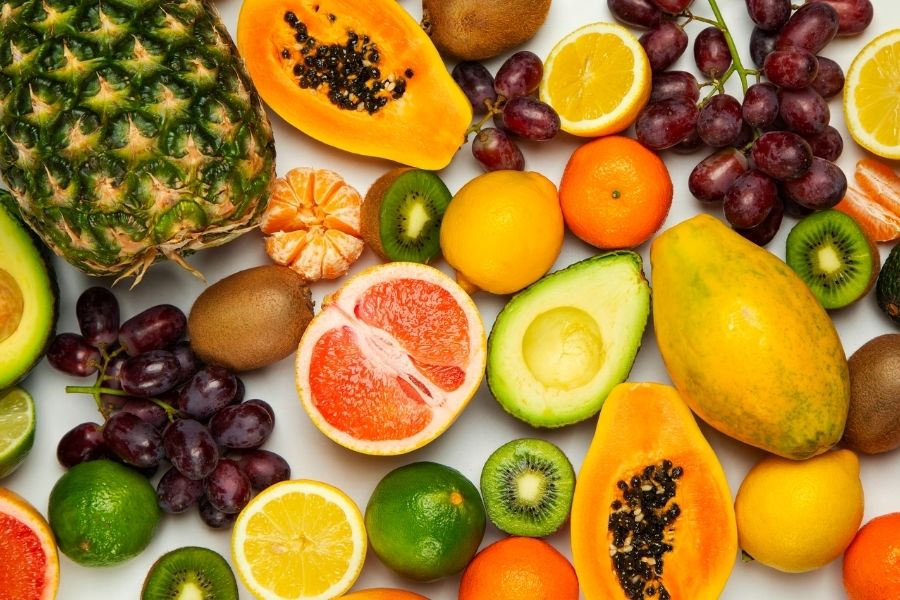Eat These Foods To Increase Male Fertility Naturally

Table of Contents
Male Fertility: Boost Your Chances Naturally with These Nutritious Foods

As a gynecologist and content writer with specialized knowledge in male fertility, I am here to provide you with evidence-based information on how you can naturally boost your chances of conceiving. While there are various factors that can affect male fertility, studies suggest that nutrition plays a crucial role in supporting healthy sperm production and overall reproductive function.
First and foremost, maintaining a well-balanced diet that includes a variety of nutrient-rich foods is essential for optimizing male fertility. Incorporating foods that are high in antioxidants, such as fruits and vegetables, can help protect sperm from oxidative damage and improve their motility and quality. Additionally, including sources of omega-3 fatty acids, such as fatty fish like salmon or sardines, can potentially enhance sperm count and mobility. It is important to note that the consumption of processed foods, excessive alcohol intake, and high levels of caffeine have been linked to reduced fertility, so it is advisable to limit or avoid these substances.
Furthermore, certain vitamins and minerals have been identified as key players in male fertility. For instance, studies indicate that adequate levels of vitamin D are associated with higher sperm count and motility. Good sources of vitamin D include sunlight exposure, fortified dairy products, and fatty fish. Moreover, zinc, which is found in foods like oysters, beef, and pumpkin seeds, is essential for proper testosterone production and sperm development. Additionally, selenium, an essential mineral found in Brazil nuts, can improve sperm motility and protect against DNA damage.
In conclusion, making informed dietary choices can significantly impact male fertility. By incorporating nutritious foods that are rich in antioxidants, vitamins, and minerals into your diet, you can help improve sperm quality and increase the chances of conception. However, it is vital to consult with a healthcare professional, such as a gynecologist or nutritionist, to ensure a personalized approach based on your specific needs and medical history.
Certainly! Here’s information on how to boost male fertility naturally with nutritious foods, presented in a table format:
| Male Fertility: Boost Your Chances Naturally with Nutritious Foods | Key Nutrients and Foods | Implications and Considerations |
|---|---|---|
| 1. Zinc-Rich Foods | – Oysters: High in zinc, which is essential for sperm production. | – Sperm Quality: Zinc plays a crucial role in maintaining sperm quality and motility. |
| – Pumpkin Seeds: Another excellent source of zinc for overall reproductive health. | – Immune Function: Zinc supports the immune system, promoting overall well-being. | |
| 2. Folate and Vitamin B12-Rich Foods | – Leafy Greens (Spinach, Kale): Rich in folate and vitamin B12. | – Sperm DNA Integrity: Folate contributes to sperm DNA integrity. |
| – Legumes (Lentils, Chickpeas): Provide a good source of folate. | – Red Blood Cell Formation: Vitamin B12 supports red blood cell formation and sperm health. | |
| 3. Antioxidant-Rich Foods | – Berries (Blueberries, Strawberries): Packed with antioxidants. | – Reducing Oxidative Stress: Antioxidants help combat oxidative stress, protecting sperm from damage. |
| – Nuts (Almonds, Walnuts): Rich in antioxidants and omega-3 fatty acids. | – Sperm Motility: Omega-3 fatty acids may enhance sperm motility. | |
| 4. Selenium-Rich Foods | – Brazil Nuts: High in selenium, a trace element important for sperm function. | – Sperm Formation: Selenium is crucial for the formation of healthy sperm. |
| – Fish (Tuna, Halibut): Good dietary sources of selenium. | – Thyroid Function: Selenium supports thyroid function, indirectly influencing reproductive health. | |
| 5. Omega-3 Fatty Acid Sources | – Fatty Fish (Salmon, Mackerel): Rich in omega-3 fatty acids. | – Sperm Membrane Structure: Omega-3s contribute to the structural integrity of sperm cell membranes. |
| – Chia Seeds and Flaxseeds: Plant-based sources of omega-3s. | – Inflammation Reduction: Omega-3s may help reduce inflammation and support overall health. | |
| 6. Vitamin D-Rich Foods | – Fatty Fish (Salmon, Sardines): Also a good source of vitamin D. | – Sperm Motility: Adequate vitamin D levels are associated with better sperm motility. |
| – Egg Yolks: Contain vitamin D, essential for reproductive health. | – Bone Health: Vitamin D is important for overall bone health and hormonal balance. | |
| 7. Lycopene-Containing Foods | – Tomatoes: Rich in lycopene, a powerful antioxidant. | – Sperm Count and Motility: Lycopene may positively impact sperm count and motility. |
| – Watermelon and Papaya: Additional sources of lycopene. | – Cardiovascular Health: Lycopene is associated with cardiovascular benefits. | |
| 8. Whole Grains and Fiber | – Quinoa, Brown Rice: Provide complex carbohydrates and fiber. | – Blood Sugar Regulation: Whole grains contribute to stable blood sugar levels. |
| – Oats: Contain beta-glucans, supporting overall cardiovascular health. | – Hormonal Balance: Fiber aids in hormonal balance, indirectly influencing fertility. | |
| 9. Moderation in Caffeine and Alcohol | – Limit Caffeine: Excessive caffeine intake may negatively impact fertility. | – Sperm Quality: High caffeine consumption has been associated with reduced sperm quality. |
| – Moderate Alcohol Intake: Excessive alcohol can impair reproductive function. | – Hormonal Disruption: Heavy alcohol consumption may disrupt hormonal balance. | |
| 10. Hydration with Water | – Adequate Water Intake: Essential for overall health and hydration. | – Semen Volume: Maintaining proper hydration is crucial for semen volume and overall well-being. |
| – Healthy Lifestyle: Hydration supports overall health and contributes to a healthy lifestyle. |
Adopting a balanced and nutrient-rich diet, along with a healthy lifestyle, can positively influence male fertility. However, it’s essential to note that individual factors and underlying health conditions also play a role.
How does diet affect male fertility?
Diet plays a crucial role in male fertility as certain nutrients and foods can impact sperm quality, count, and motility.
What are some key nutrients that can boost male fertility?
Important nutrients for male fertility include zinc, selenium, vitamin C, vitamin E, omega-3 fatty acids, and antioxidants.
Which foods are rich in zinc, a nutrient important for male fertility?
Foods rich in zinc include oysters, lean meat, poultry, beans, nuts, and whole grains.
What are some good dietary sources of selenium?
Selenium can be found in foods like Brazil nuts, seafood, liver, eggs, and whole grains.
Which foods are high in vitamin C and vitamin E, both beneficial for male fertility?
Citrus fruits, berries, kiwi, broccoli, spinach, almonds, and sunflower seeds are good sources of vitamin C and vitamin E.
How can omega-3 fatty acids positively impact male fertility?
Omega-3 fatty acids can improve sperm quality and motility. Foods rich in omega-3s include fatty fish, flaxseeds, chia seeds, and walnuts.
What role do antioxidants play in male fertility?
Antioxidants help protect sperm from oxidative damage. Foods like berries, pomegranates, dark chocolate, and green leafy vegetables are high in antioxidants.
Can a specific diet or food increase the chances of conceiving a child?
While there is no guarantee, a well-balanced diet that includes these fertility-boosting foods can improve overall sperm health and increase the chances of conception.
Are there any foods or habits that men should avoid for optimal fertility?
Men should limit their intake of processed foods, excessive alcohol, caffeine, and trans fats, as these may negatively impact fertility.
Should men consider taking dietary supplements to enhance fertility?
It is advisable to consult with a healthcare professional before starting any supplements, as they can provide personalized recommendations based on individual needs.






